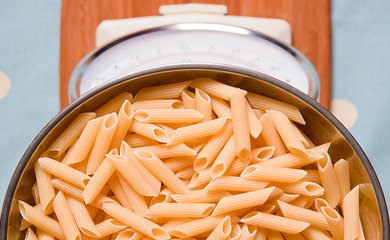In recent years, numerous experts from around the world (scientists, economists, politicians, environmentalists, sociologists), has been researching the great food paradoxes of our time, namely:
- With more than 800 million people who do not have access to food, there are almost twice as many who are overweight or obese. About 30 million people die each year because they do not have access to food – nearly the same number as those who die for eating too much food (or for eating bad food)!
- People, animals and cars are increasingly competing for food. While 800 million people in the world starve or suffer from under-nutrition, 33% of cereal production is used to feed livestock and 7% of the production of cereals in the world is used for the production of biofuels.
- One third of the food produced in the world every year is lost, wasted or thrown away. In developing countries, this happens because food often fails to reach the processing industry: i.e. it is lost upstream for lack of infrastructures or logistics (transport /storage); in the so-called advanced economies, such as Europe or the United States, it is lost simply for our bad behavior: because we do not eat everything we buy.
Unfortunately, for too many years, these emergencies have not been at the top of the agendas of world leaders. If you look at the work of the various G8 and G20; if you look at the agendas of the European Union Council, they talk about economics, finance, competitiveness, migration and terrorism; and much more. All very important issues, without a doubt. But it is not reasonable that the great paradoxes on food, nutrition and the planet’s resources are not discussed as priorities. Because their solution is the prerequisite for the solution of all the other problems!
Instead, those issues have been outsourced along with their accountabilities, and in this way heads of state and government can offload the issue. Instead of tackling and discussing them, they have delegated these themes to large international organizations, without giving such organizations the adequate powers to tackle them.
These topics can be put back on the agendas of world leaders only by raising the awareness of people. How? For the first time, the Universal Exposition (EXPO) – which this year is held in Milan, Italy, from May to October – will focus precisely on the subject of food. The title chosen for the event is: “Feeding the Planet, Energy for Life” and it clearly and powerfully puts the topic of food at the centre of the agenda.
Some 140 countries from all over the world have decided to participate with their pavilions in this Universal Exposition; leaders from these same countries will devote at least one day of their time to visit and thus to talk about the topic. Around 20 million people from all over the world will visit the Expo site; but even more importantly, for six months, the media worldwide will talk about the topics of food and nutrition; in short, the coming months are a unique opportunity to talk, discuss and propose paths and solutions to the above mentioned paradoxes.
We must ensure that this Universal Exposition is not only a great business event at the end of which nothing remains; let’s make sure that it has a legacy, that this Expo produces the seed and the commitment to put an end to malnutrition and hunger, as soon as possible, to put an end to obesity, food waste, and much more.
This is the reason why the Barilla Centre for Food and Nutrition has proposed a protocol known as the Milan Protocol, which in addition to recalling the dilemmas that we talked about, also indicates precise guidelines and objectives to be achieved in the years to come.
- So that the eradication of hunger does not only remain a goal in words but it is actually pursued.
- So that the rising obesity problem is tackled effectively thanks to specific measures on promoting food education from a young age
- So that a sustainable agricultural system is promoted by banning speculators from playing with agricultural raw materials on the stock exchange. So that food is produced for human consumption and not to feed cars!
- So that food waste is reduced by 50% by 2020.
We have written the Milan Protocol with the help of the leading international experts; thousands of ordinary people and opinion makers have endorsed it; dozens of public and private NGOs have shared its contents and have signed it, from Slow Food to the Jamie Oliver Foundation. At the end of last year, Italian Prime Minister Matteo Renzi gave his strong support to the plan.
As a result, the Italian Government, which will be hosting the Universal Exposition, has announced that on that occasion a special food document will be presented – the Milan Charter. Taking inspiration from the Milan Protocol, it will deal with the same issues and will aim to get the widest support possible. On October 16, 2015 on the occasion of the World Food Day, the Milan Charter will be handed over to the Secretary General of the United Nations for inclusion in the Millennium Development Goals. The Italian Government’s intention is for the Milan Charter to be a policy-making document open to all, because each one of us, in his/her capacity, can make a contribution.
Photo by Christian Cable, licensed under a Creative Commons Attribution 2.0 Generic license

